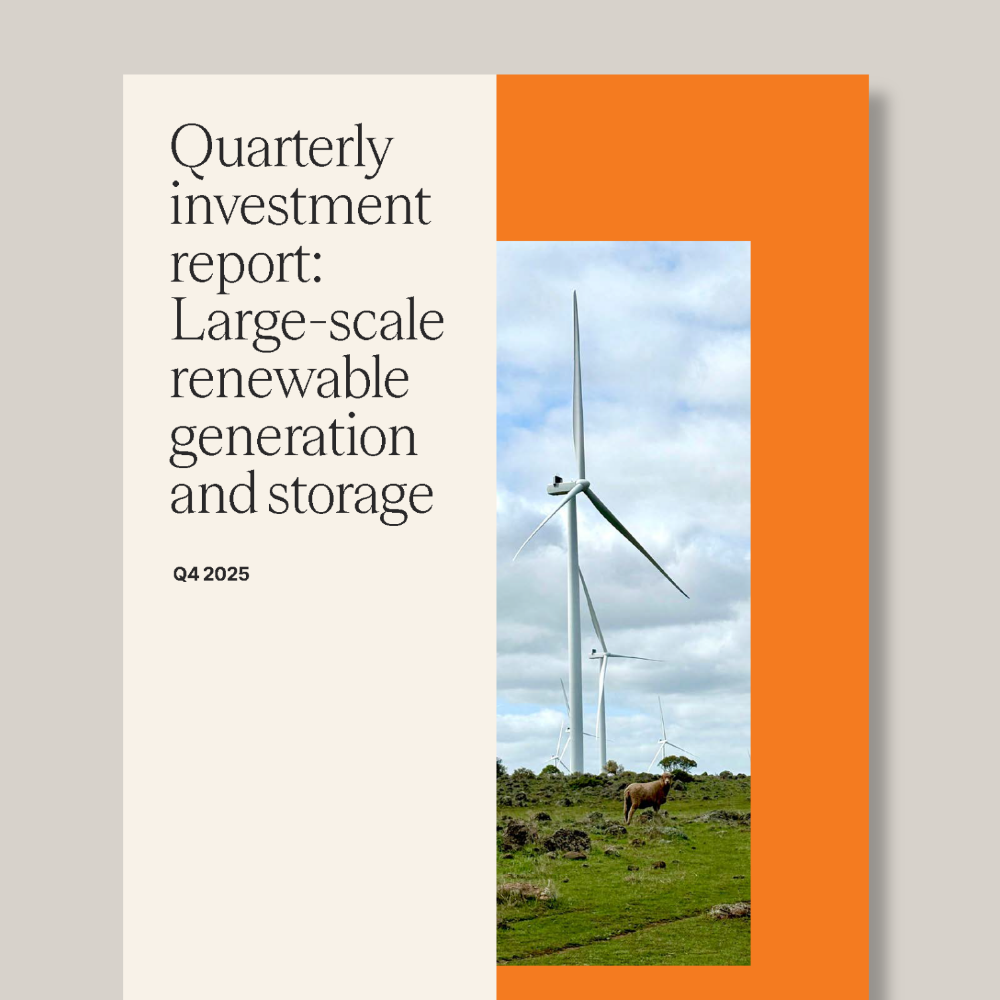The following statement is attributable to Clean Energy Council Interim CEO, Brett Wickham:
The Clean Energy Council (CEC) welcomes the opportunity to participate in the Energy Roundtable being hosted by the Minister for Climate Change and Energy on 8 August, focussed on driving productivity to secure Australia’s energy future.
This is a valuable opportunity to have a serious and solutions-focussed discussion about the nation’s clean energy transition and the challenges currently confronting it.
Nothing is more important to our economy than a smooth energy transition and access to affordable, reliable energy. The renewable energy sector is working to build the next generation of least-cost electricity infrastructure that we need, but the clock is ticking and progress is much slower than we want and need.Brett Wickham Clean Energy Council Interim CEO
A range of challenges and hurdles have become pressing issues that must be addressed. These include:
- Slow transmission build which is delaying projects. Accelerating the build of critical infrastructure to get projects connected to the grid is essential and has started too late. We have learned a lot over the past three years about how to do these nation building projects better – including the fair treatment and compensation of host communities – and I look forward to all stakeholders working together to now build momentum in our transmission rollout.
- Slow and extended timeframes for environment and planning assessments for renewable energy projects. A 2023 report by HSF-CEIG found that over the past five years, the average approval time frame for large-scale renewable energy projects in NSW was 746 days (over two years). Worryingly – for wind projects, which are critical to keeping energy costs down for consumers in peak demand periods – it was almost 10 years (3488 days or 9.5 years). This cannot continue.
We need faster, more consistent environment and planning assessments for Renewable Energy Zones that reduce the time it takes for industry to deliver projects in these zones, while aligning with regional biodiversity outcomes to provide a fair and predictable process for all. This requires changes to the Environment Protection and Biodiversity (EPBC) Act to consider protections that can be achieved at a regional scale versus project by project.
EPBC Reforms
At a national level, a 2024 report found over the past six years, the average timeframe between referral and final approval for clean energy projects across Australia under the EPBC Act is approximately 476 days, with only two final approvals under the EPBC Act to-date since 2023.
If we are to build the infrastructure required to reach Australia’s emissions reductions targets, we need a system that provides certainty and clarity for project developers, while speeding up approvals and upholding strong protections for the environment. This is not a choice between clean energy and protecting nature – we can and must deliver both.Brett Wickham Clean Energy Council Interim CEO
The CEC will be advocating for the following six outcomes from the EPBC reforms:
- The introduction of national environmental standards – These would clearly set out the obligations of proponents to ensure environmental benchmarks are met, which provides clarity in project design and assessment. These standards will also provided clarity on offset obligations.
- The introduction of regional planning – These would include the creation of pro forma conditions for priority actions, and the introduction of development and conservation zones.
- The introduction of Environment Information Australia – as a central source of truth and keeper of a consistent set of environmental planning data
- The establishment of an independent regulator via Environment Protection Australia (EPA) – with decision-making, compliance and enforcement powers
- The need for a phased approach and transitional arrangements – whereby projects can opt-in to new laws depending on where they are at in their project development
- A parallel process to help guide industry through the new laws prior to the new laws coming into effect.
We recognise that we need to bring communities on the journey regarding projects that impact them. Regional communities are hosting the infrastructure that powers our future and we must do better by them as an industry by prioritising genuine local engagement and consultation, local benefit sharing, job creation and regional investment.
The energy transition is a national project that demands co-ordination, urgency and clarity. We look forward to engaging constructively and offering practical ideas to help maintain momentum and deliver the outcomes Australia needs.Brett Wickham Clean Energy Council Interim CEO
ENDS
For more information or to arrange an interview, please contact:
Liam Straughan
Clean Energy Council Media Officer
+61 409 470 683





